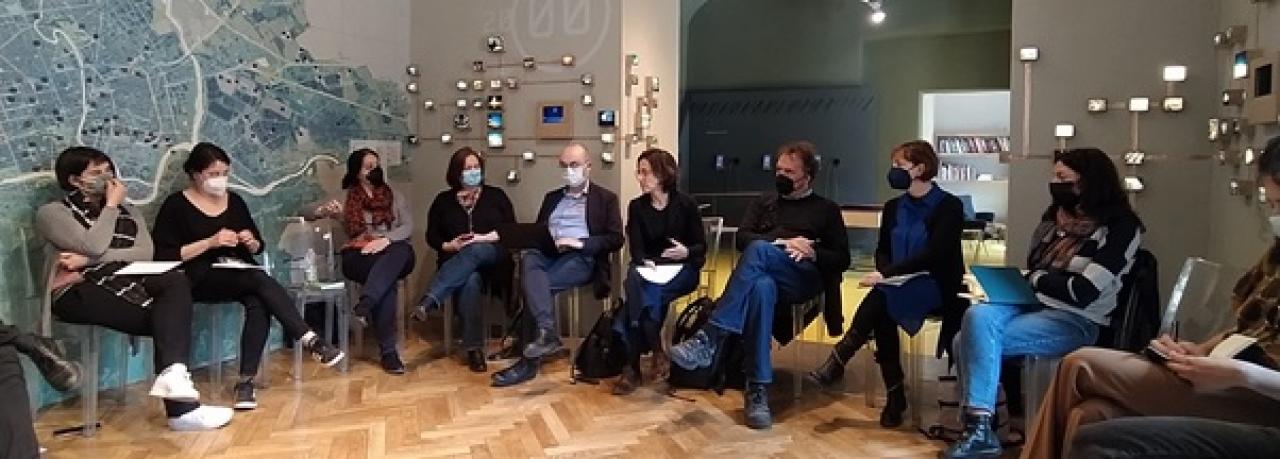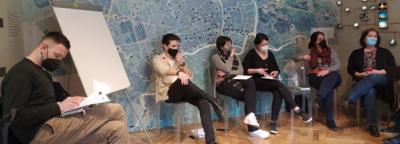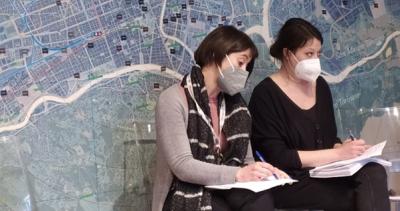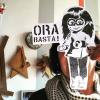
The sixth Urbact Local Group (ULG) meeting in Turin took place on 13 april 2022 at Urban Lab’s spaces.
The meeting focused on the presentation of two actors, ULG’s members and writer of Springboard Plan too. Silvia Cordero e William Revello (Ufficio Pio - Compagnia San Paolo) presented their work during the pandemic on the topics of social loneliness and urban policies. The second part of the meeting - presented by Chiara Luccini, Marta Ugolotti e Alessandro Tempia Valenta of Urban Lab- focused on the selection of the social and cultural infrastructure of Turin for the Springboard Plan. Each of the presentations was discussed by ULG in order to produce a collective and co-design tool (SP).
The multidimensionality of loneliness - Ufficio Pio
We are used to thinking of loneliness as an individual and private phenomenon, the result of situations of discomfort independent of the external environment. The Ufficio Pio, which for years has been supporting families in economic vulnerability, has analyzed the theme of loneliness during the pandemic, linking it to poverty and social exclusion, understood as elements favoring the phenomenon.
Social distancing, imposed in the emergency, has affected the entire population, but has seriously affected the individuals with less relational and economic capital. This has highlighted the importance of social relations for the well-being of individuals and the community. Therefore, loneliness influences and is influenced by different spheres of life, making it a complex phenomenon that must be addressed as a collective public health problem. Moreover, its multidimensionality also makes the support intervention more complex in favor of the strengthening of quality social relations, bilateral (beneficiary-volunteer) or collective, capable of going beyond monetary support.
In this framework, the Ufficio Pio reformulated some projects, designed before the pandemic, such as the Tavole Allegre project. What had emerged from the activities in 2019 was the inability of fragile individuals to consolidate and put to use, when needed, the relationships undertaken during the project. This perception became more apparent when project activities moved online in 2020. Whatsapp groups, video-recipes or simple interactions with volunteers have taken care of the virtual space transforming it into a place of relationship in which to exchange ideas and not feel alone. The activity carried out, subjected to counterfactual evaluation in 2021, showed a positive impact on the individual's relationship with others without particularly modifying self-perception and the feeling of loneliness. However, the evaluation also involved all the volunteers who, in various ways, gravitate around the organization.

The heterogeneity of the sample analyzed made it possible to find an interesting finding. The positive evaluation of the group of volunteers regarding the feeling of fulfillment seems to indicate that having an active role, being the main actors in the care of others and themselves can significantly affect personal well-being. For this reason, the construction of support processes should aim to encourage the engagement of people and create spaces for activation rather than considering fragile individuals as beneficiaries without the ability to act.
> A theory of change against loneliness
Since 2021 the Ufficio Pio has started a process of comparison for the construction of a theory of change useful for the definition of a new program of intervention. In parallel, it has pursued the analysis of support modalities in the international context.
The process involved a multidisciplinary group which, drawing on its own experience and the literature, profiled the characteristics of the lone person useful for a shared interpretation of the phenomenon. In an attempt to break out of the limits of social policies, the word "loneliness" has replaced "relational poverty", thus encouraging the use of a plural term that describes the phenomenon, its impacts on society and the number of people potentially affected.
In fact, recognizing loneliness as a public health problem, it emerges how this phenomenon progressively limits social cohesion, reduces active participation and increases hostility towards others, regardless of the status quo of each individual. An understanding of the phenomenon translates into the possibility of developing projects with different access requirements compared to traditional methods (e.g. projects without ISEE - Indicator of equivalent economic situation). Or it allows to deepen the phenomenon in relation to the spatial dimension of the city by recognizing the influence that different urban patterns have on the quality of population life. Urban policies in this sense should involve different actors to study the cause-effect relationship between loneliness and the city and then promote projects capable of producing cohesive and collaborative communities.
Mapping social/cultural infrastructure of Turin - Urban Lab
In the second part of the meeting, the ULG discussed and shared reasoning on what data to bring out of the mapping to be included in the Springboard Plan. Urban Lab presented initial mapping hypotheses focusing on 4 main themes:
● Social infrastructure nodes
● Collaborative living
● Social innovation
● Urban regeneration programs and initiatives

The maps will support the publication (SP) for the restitution of spatialized information that will improve the accessibility of content. The group then defined the type of representation by selecting the spaces and realities to be maintained and those that do not fall within the project focus. In addition, the elaboration of a timeline is planned to visualize future plans and intentions.
MAPPING THE EXISTING | MAPPING THE FUTURE PROJECT | TIMELINE OF URBAN REGENERATION PROCESS |
The approach used by the ULG allows for a progressive and shared work of mapping in accordance with the goals of Co4Cities.

